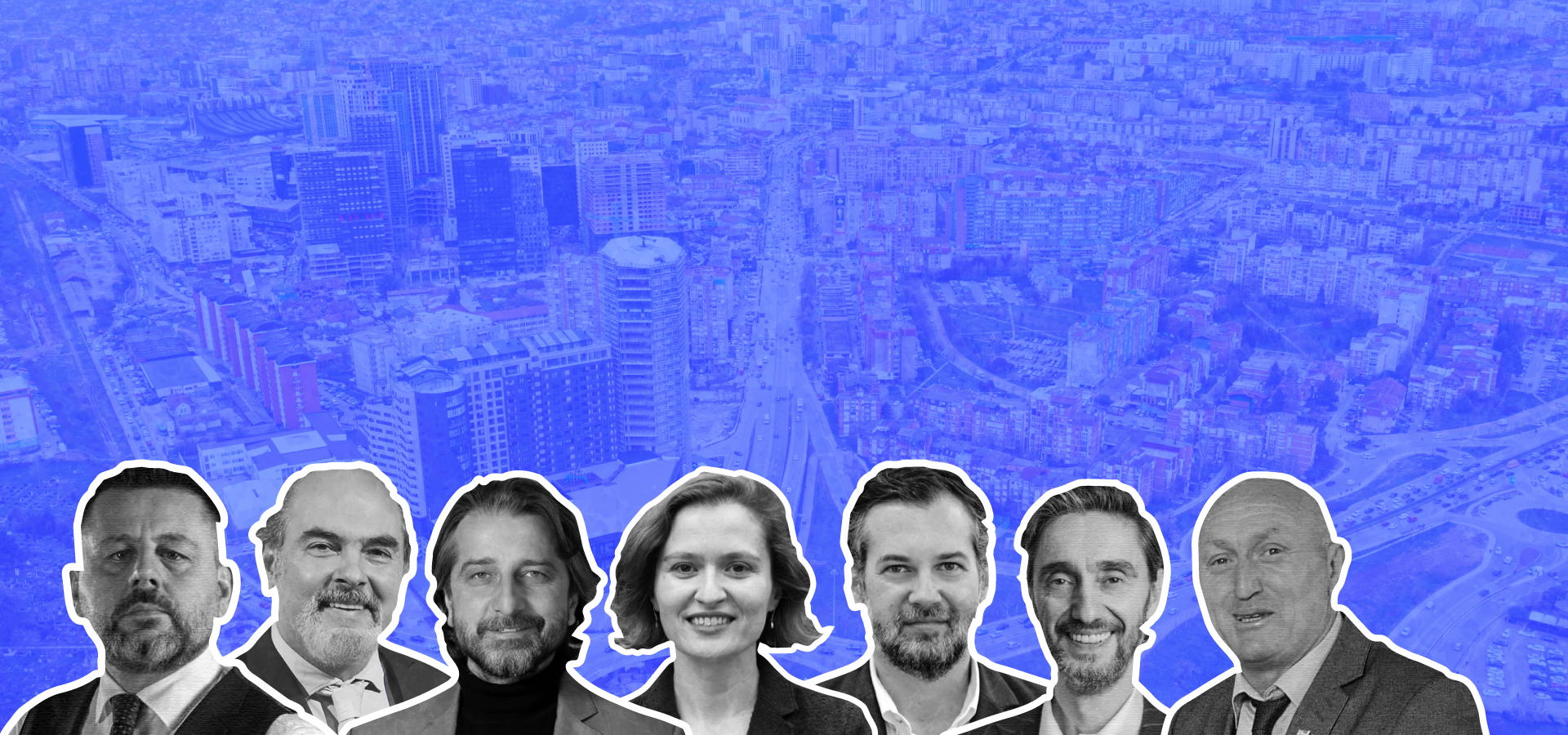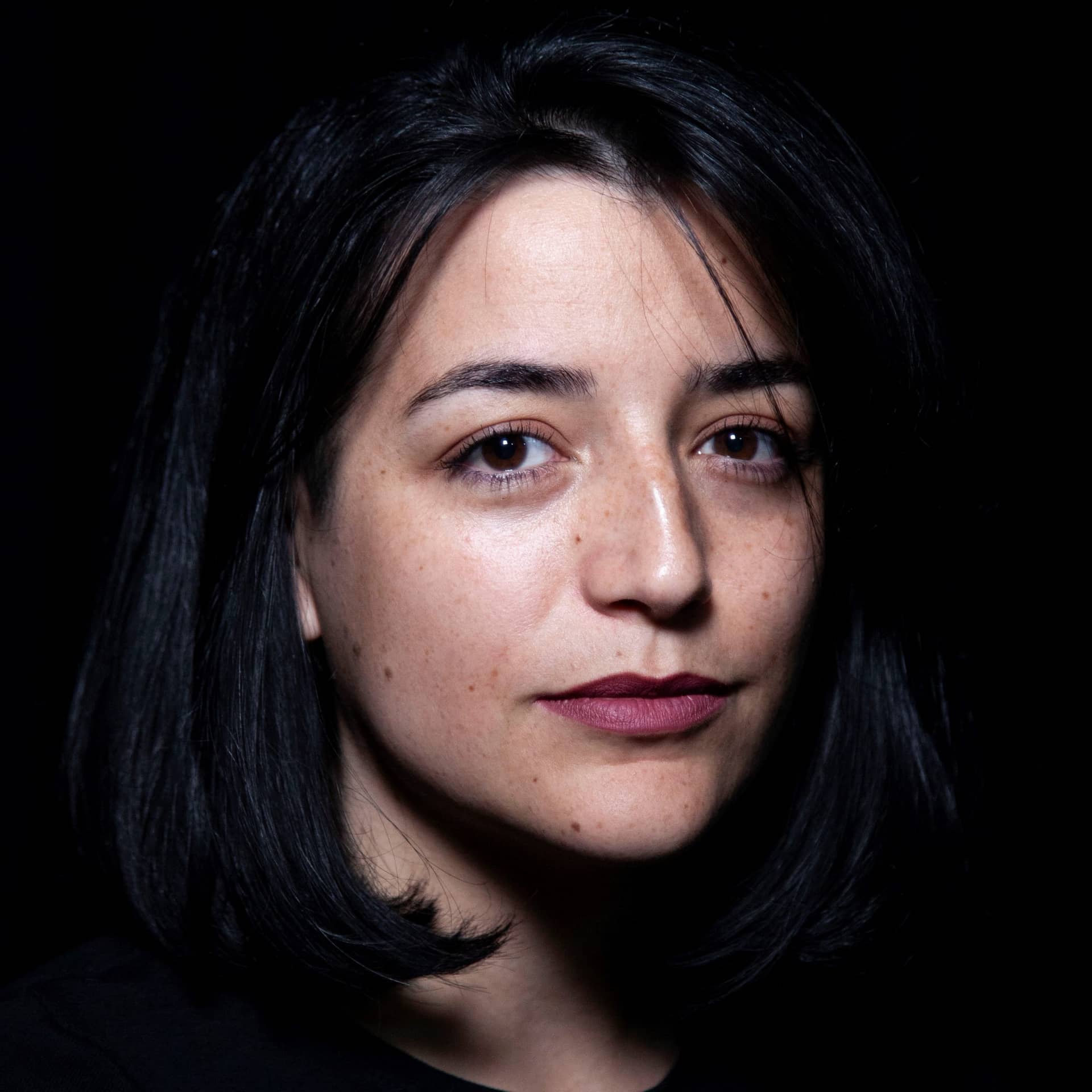
Who will hold the key to Prishtina?
From experienced politicians to new names, these are the candidates aiming to win the trust of the capital's residents.
|14.08.2025
|
Although a new name in Kosovo politics, Rama entered the race for Prishtina in 2021 with an internationally established career in architecture and interior design. In 1992, at the age of 16, he moved to the UK, where he completed both his Bachelor’s and Master’s degrees in architecture. In 2004, he opened his own architecture firm, through which he has won numerous awards.
He rose to prominence in Kosovo in 2012 when he represented Kosovo at the Venice Biennale of Architecture with an exhibition titled “The Filigree Maker.” Just a year later, he and his team won First Prize in the 2013 World Interiors News Annual Award for the interior design of the Hamam Jazz Bar in Prishtina, which, for a time, was one of the city’s most prominent nightlife spaces. Rama was a member and vice-chairman of the board of Manifesta, a nomadic European Biennale held in different European cities every two years; Prishtina hosted the event in the summer of 2022. He resigned from this position when he decided to run for the mayor of Prishtina.
In 2019 and 2020, Rama’s name made local headlines in controversy. His business had designed and was a co-investor in a 17-villa residential complex on the shores of Lake Badovci, one of Prishtina’s main sources of drinking water. Although the municipality approved the plans, the project sparked strong reactions from residents and environmentalists who feared the construction could endanger the capital’s water supply.
The project was ultimately canceled by the current LDK leader, Lumir Abdixhiku, who had served as Minister of Infrastructure during Kurti’s first government in 2019. Abdixhiku stated that the government’s decision responded to civic activism and a commitment to protecting natural resources. Rama was still given the opportunity to run for LDK, even after Abdixhiku took over the party leadership in 2021.
In the 2021 local election campaign, Rama’s platform focused on three “P-s”: Practical Prishtina, Clean Prishtina, and Experiential Prishtina. “Practical Prishtina” targeted infrastructural changes, which included education, health, road safety and parking, with a particular focus on an ambitious project to redesign Mother Teresa Square, extending it into the heart of Prishtina. This aimed to increase pedestrian accessibility and establish a new traffic hierarchy prioritizing pedestrians first, then public transport, with cars last. “Clean Prishtina” emphasized green mobility, creating green parks, expanding walking paths for pedestrians and people with disabilities, improving public transport connections to surrounding mountainous areas, and implementing projects for waste management and recycling. “Experiential Prishtina,” the cultural component of the platform, included infrastructure plans for an orchestra, a new theater, an art gallery and a modern hall for various cultural events — placing culture at the center of the urban experience.
Four years later, Rama’s administration has faced widespread criticism, with only a few of these projects having been implemented. One of the most frequent accusations against him is the lack of execution: many projects remain on paper — initially presented with much fanfare, which are then delayed or never realized. Rama has justified this by pointing to blockades from central government, even though there are cases where projects, wholly in the municipalities jurisdiction, have not been completed, such as the connection between the “Dardania” and “Kalabria” neighborhoods, the underground parking lots at the Post of Kosovo’s central facility in Dardania and the operation of ski lifts in Gërmi.
In his re-nomination on July 24, Abdixhiku highlighted the completion of key projects, which are still in progress, as significant achievements of Rama’s first term and as remaining goals for his second. Among the projects he mentioned were the construction of the inner ring road, George Bush Square, Road A, and the all-day school model, which have just begun to be implemented.
The closure of George Bush Square in 2024 was one of the most controversial interventions in the capital. A major connecting road was closed to prioritize pedestrians, but this caused significant chaos in urban traffic, with no feasibility study made public to assess the impact of the change. The tender for transforming the road into a square was blocked by the Inspectorate for the Protection of Cultural Heritage, which argued that the project infringed on protected sites. This face-off was the third between the Municipality and this institution due to non-compliance with legal procedures before construction commenced. The tender, valued at over 18 million euros, remains the only concrete phase of the project, while the city continues to suffer the consequences of an intervention that began with much fanfare but ended in an urban mess.
In addition to the unbearable urban chaos that engulfed the city, Pristina took on the appearance of a garbage dump for weeks due to disputes between the municipality and the public enterprise “Pastrimi”.
In this institutional clash, however, it was the citizens who suffered the consequences. The National Institute of Public Health of Kosovo (NIPHK) warned that the mismanagement of waste creates favorable conditions for the development of bacteria, parasites and insects, which increases the risk of spreading infectious diseases. At this time, the prosecutor’s office launched investigations into the failure of waste management in the capital.
Meanwhile, during Rama’s mandate, Prishtina launched a full-day learning model in September 2024, for the first time in five schools. This initiative has been highly praised as it promotes public education and provides a learning model that has so far been exclusive to private schools, at a much higher cost.
Public schools that have implemented this model have highlighted the possibility of providing a full-day stay for children, which, in addition to teaching activities, also includes extracurricular subjects, completing schoolwork, and avoiding a problem often cited by parents, the carrying of heavy school bags. Although this model currently has a limited scope and only includes a few schools in the Prishtina region, the aim is to expand it. However, to achieve this, the construction of new school buildings is necessary due to the large number of students already in Prishtina’s schools.
Another chronic problem in Prishtina remains the management of stray dogs. According to data from the University Clinical Center of Kosovo (UCCK), 112 cases of bodily injuries caused by stray dogs were recorded between January and September 2024, a statistic underscoring the urgent need for their safe management and treatment through institutional policies.
In 2022, the Municipality announced plans to expand sterilization campaigns and to establish a Stray Dog Treatment Center. In June 2023, a program was launched by the Municipality offering a subsidy of 50 euros per month to citizens who adopt up to five dogs. This project, however, lacked an effective implementation mechanism, and abuses involving both the project and dogs soon came to light. In 2022, Rama also stated that the Municipality was preparing to make the shelter for stray dogs functional and that the location for this center was ready. This shelter, however, has never been put into operation.
In this year’s local elections, Rama is running with the slogan “Prishtina beyond”, as he puts it, “the ordinary”. Rama has not yet published the political program with which he intends to take over the leadership of Prishtina for another term, and he has not launched any significant electoral activity, apart from promoting his work as the current mayor of the capital.

Gentiana Paçarizi
Gentiana Paçarizi is managing editor at K2.0. She has completed a master’s degree in Journalism and Public Relations at the University of Prishtina ‘Hasan Prishtina’.
This story was originally written in Albanian.